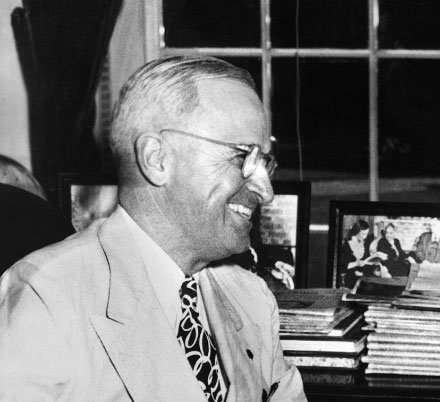
Not long ago I read Harry Truman’s biography. I don’t like his politics of social welfare statism, although by the standards of even today’s Republicans, he looks like Thomas Jefferson. I will always be grateful to Truman for doing what had to be done to end the war with Japan, although given how the U.S. is squandering that legacy by allowing Islamofascists to slowly take over civilization, it’s hard not to sometimes think it doesn’t matter. But the thing I liked best about reading Truman’s biography was his fulfillment of the ideal, “Say what you mean, and mean what you say.” The evidence of Truman’s actions, statements, private letters and policies over the years prove that he absolutely sought to live by this ideal. The amorality of Washington DC, even back in the 1940s, might make this nearly impossible, but so far as I can tell, Truman pulled it off. This, I think, explains the appeal of Truman so many years later, not primarily politically, but psychologically and character-wise. Today’s politics are mind-numbing light years away from anything remotely resembling integrity, needless to say. But beyond politics: Today’s whole culture seems far away from that ideal, as well. If you’re fortunate, you know at least a handful of people who live by the standard of “say what you mean, and mean what you say.” If you’re smart, you practice it yourself. There is no self-esteem without this standard. You cannot possibly respect yourself if you don’t hold yourself to this standard, and you cannot possibly respect others unless you expect it of them. Harry Truman got this, at a time when it still mattered a little in American society. It no longer seems to matter in American society — but believe me, it still matters.
